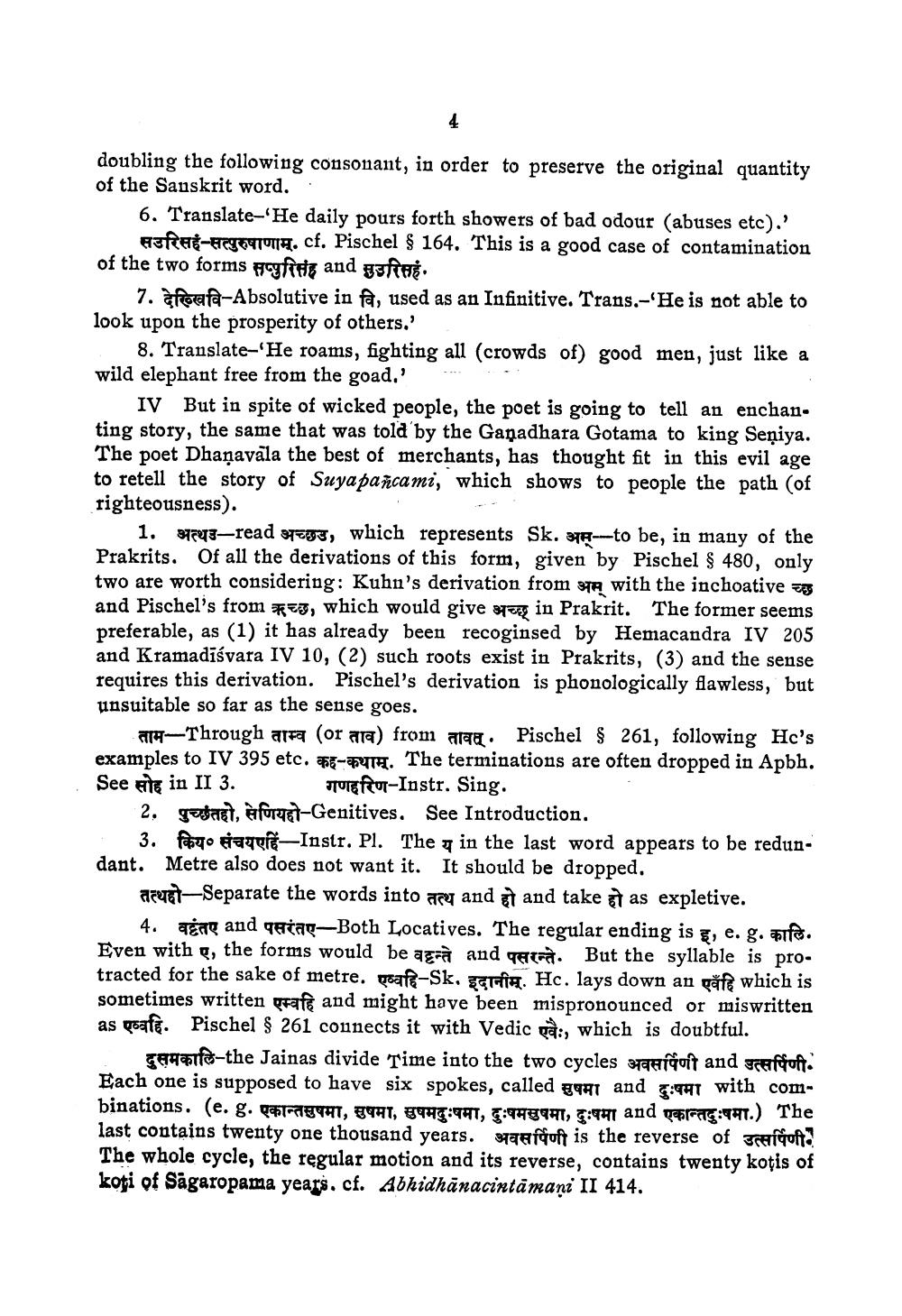________________
doubling the following consonant, in order to preserve the original quantity of the Sanskrit word.
6. Translate-'He daily pours forth showers of bad odour (abuses etc).'
STA-FEI GATTH. cf. Pischel & 164. This is a good case of contamination of the two forms सप्परिसंह and Fउरिसहं.
7. fiscafa-Absolutive in fa, used as an Infinitive. Trans.- He is not able to look upon the prosperity of others.'
8. Translate-'He roams, fighting all (crowds of) good men, just like a wild elephant free from the goad.' **
IV But in spite of wicked people, the poet is going to tell an enchan. ting story, the same that was told by the Gañadhara Gotama to king Seņiya. The poet Dhaņavāla the best of merchants, has thought fit in this evil age
retell the story of Suya pancami, which shows to people the path (of righteousness).
1. 37743-read 37733, which represents Sk. 37-to be, in many of the Prakrits. Of all the derivations of this form, given by Pischel $ 480, only two are worth considering: Kuhn's derivation from sta with the inchoative za and Pischel's from #3, which would give energy in Prakrit. The former seems preferable, as (1) it has already been recoginsed by Hemacandra IV 205 and Kramadīśvara IV 10, (2) such roots exist in Prakrits, (3) and the sense requires this derivation. Pischel's derivation is phonologically flawless, but unsuitable so far as the sense goes.
914–Through arra (or ata) from alaa. Pischel § 261, following He's examples to IV 395 etc. -PYTH. The terminations are often dropped in Apbh. See ete in II 3. Trefo-Instr. Sing.
2, gesagt, enforget-Genitives. See Introduction.
3. fuo frag -Instr. Pl. They in the last word appears to be redundant. Metre also does not want it. It should be dropped.
ACUET-Separate the words into an and it and take at as expletive.
4. gay and Thia-Both Locatives. The regular ending is g, e. g. Afs. Even with g, the forms would be aga and Thra. But the syllable is protracted for the sake of metre. एव्वहि-Sk. इदानीम्. Hc. lays down an एवहि which is sometimes written grafe and might have been mispronounced or miswritten as poate. Pischel S 261 connects it with Vedic gas, which is doubtful.
दुसमकालि-the Jainas divide Time into the two cycles अवसर्पिणी and उत्सर्पिणी. Each one is supposed to have six spokes, called h1 and Thi with combinations. (e. g. atau TT, UTHT, UTH: HT, THECHT, :71 and gebra: THT.) The last contains twenty one thousand years. Sanfguft is the reverse of refGofta The whole cycle, the regular motion and its reverse, contains twenty kotis of koti of Sågaropama years. cf. Abhidhānacintamani II 414.




